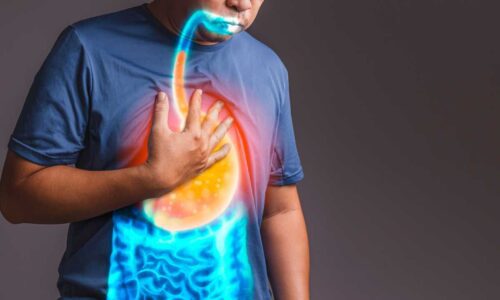What is IBS or Irritable Bowel Syndrome? |

Irritable bowel syndrome (IBS) is a common condition that affects the large intestine. It causes a mix of abdominal symptoms, including pain. It can sometimes cause significant symptoms, but is not associated with any evidence of underlying damage in the colon. There are three types of IBS; constipation-predominant (IBS-C), diarrhea-predominant (IBS-D), and mixed type. Most people with IBS are able to manage this condition with lifestyle changes. There are also medication treatments available if symptoms cannot be controlled with these changes.
>What are the symptoms of IBS?
The symptoms do vary quite a bit between patients, but here are some of the common symptoms:
- Abdominal pain, often crampy
- Bloating or excess gas
- Diarrhea, constipation, or alternating between bouts of each
What causes IBS?
Unfortunately, we really don’t know the exact cause of IBS. There are some things that appear to play a role in the condition. These include:
- Changes in the bacteria in the gut, often referred to as the microbiome.
- Changes in the nervous system may cause abnormal signals between the brain and the gut.
- Abnormal muscle contractions in the intestines. Overactive muscle contractions can lead to diarrhea and cramping. Underactive contractions can cause constipation.
- Infection. Some people develop IBS after a severe gastrointestinal infection.
What triggers IBS symptoms?
- Food – There are many foods that can trigger IBS symptoms. Next week we will talk more about the foods that are typical triggers.
- Stress -Symptoms of IBS are often aggravated or worsened by stress.
- Hormones – Women often find that IBS symptoms are worsened around their menstrual periods. Women with IBS who take estrogen supplements have more symptoms as well.
How is IBS diagnosed?
There is no test that can definitively diagnose IBS. If you have gastrointestinal symptoms, your doctor will want to rule out other possible causes of your symptoms, particularly any causes that might be more serious. Your doctor will start with a good medical history, do a thorough physical exam, and do some tests to rule out other causes. What tests are done will usually depend on your history and physical exam findings.
How is IBS treated?
- Avoiding foods that trigger symptoms
- Regular exercise
- Drinking plenty of fluids, especially water
- Maintaining a good sleep pattern
- Medications – There are many medications available to treat IBS. Medication is chosen based on the type of IBS you have, the severity of symptoms, and many other factors.
- Future treatment might include a fecal transplant – Recent research indicates significant improvement in IBS symptoms after fecal microbiome transplants. More study needs to be done, but this appears very promising.
If you have any more questions just Ask Hanna, our health advisors are here to help.
Dr. Anita Bennett MD – Health Tip Content Editor
Image: ©Shutterstock / BlurryMe








